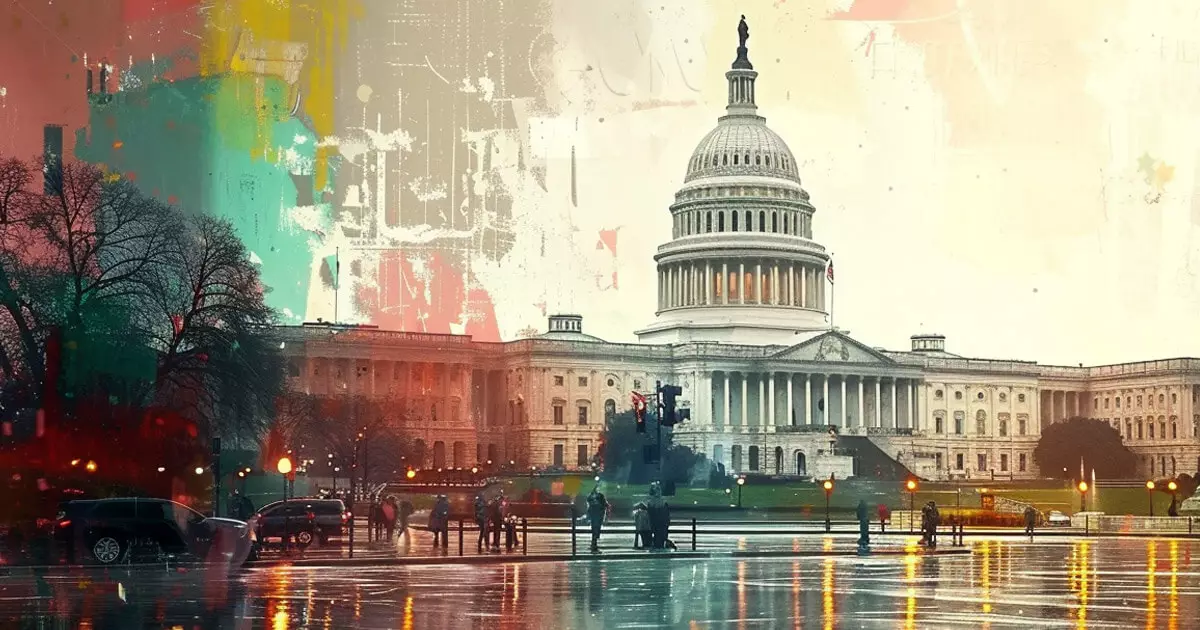Recent developments in the legislative landscape have highlighted the increasing tensions between cryptocurrency businesses and regulatory bodies. Representative French Hill, a key figure in these discussions, has announced his intention to escalate scrutiny over the reported efforts by financial regulators to undermine access to banking services for cryptocurrency companies. Hill’s stance follows alarming statements made by industry leaders, including Marc Andreessen, a co-founder of the prominent venture capital firm a16z, during a recent appearance on the Joe Rogan podcast.
This turn of events occurs in the context of Hill’s aspirations to lead the House Financial Services Committee, especially as the committee prepares for a shift in leadership with the retirement of current Chair Patrick McHenry. Hill emphasized the fundamental right of legal businesses—such as those within the cryptocurrency industry—to access essential banking and financial services. He asserted, “This committee will thoroughly investigate these issues into the next Congress,” underlining his commitment to ensuring favorable operating conditions for crypto entities.
The phrase “Operation Choke Point 2.0” has reemerged in discussions as stakeholders voice concerns over federal actions that seem aimed at limiting banking services for certain sectors. The original Operation Choke Point was a controversial initiative by the Justice Department, introduced in 2013, which sought to curtail financial services for industries designated as high-risk, such as payday lending. The current fears echo the sentiments of the past, with industry advocates arguing that some regulatory measures may unjustly target legitimate crypto businesses.
During a recent hearing on financial technology, both Denelle Dixon, CEO of the Stellar Development Foundation, and leaders from Anchorage Digital reported struggles to maintain productive banking relationships. Dixon notably shared her experience of reaching out to multiple banks only to receive rejection without clear explanations—a situation indicative of the challenges facing crypto businesses as they attempt to establish credibility and legitimacy in an evolving financial landscape.
As the House Financial Services Committee gears up for new leadership, it presents both challenges and opportunities for cryptocurrency advocates. With figures like Hill seeking the committee chairmanship, there is potential for a new direction that could foster a friendlier regulatory environment for digital assets. Notably, Hill’s alignment with newly elected President Donald Trump, who has pledged to dismantle regulatory frameworks similar to Operation Choke Point, could signal a transformative year for crypto legislation and oversight.
The Federal Deposit Insurance Corporation (FDIC) weighed in during an insightful 2024 report, stressing that banking institutions are not outright forbidden from servicing specific industries. However, Hill and fellow lawmakers have posed critical questions regarding the uniformity in the application of these policies across different financial institutions. The clear divide between regulatory intentions and operational realities continues to spark debate within Congress and the broader financial community.
Alongside issues surrounding banking access, the conversation has also shifted toward stablecoin regulation. Lawmakers are deliberating how much authority should be vested in state regulators versus federal oversight. Hill, while optimistic about the progression of crypto-related legislation, acknowledged the pressing time constraints. He stated, “We’ve made significant progress, and I believe we can reach a consensus,” indicating that bipartisanship will be crucial for any advancement in this arena.
Rep. Maxine Waters, a Democratic lawmaker from California, who has collaborated with McHenry on developing a bipartisan framework for stablecoin legislation, also expressed hope for progress before the year’s end. However, she cautiously noted the legislative calendar’s congestion, an issue that could hinder timely agreements.
The intricate dynamics of cryptocurrency regulation are far from straightforward, and the ongoing discussions within Congress underscore the critical nature of these debates. As Representative French Hill takes a proactive role in scrutinizing the possible suppression of crypto banking services and seeks to advance legislation, the landscape is poised for significant transformation. The willingness of lawmakers from both parties to engage in bipartisan efforts around stablecoin regulation further illustrates a potentially collaborative climate.
While the hurdles are considerable, the current dialogue and legislative intentions reflect a shift toward a more inclusive financial system for cryptocurrency enterprises. The coming year will be pivotal in determining the future of crypto access to banking services and the overall regulatory framework that governs this rapidly evolving industry.



















Leave a Reply